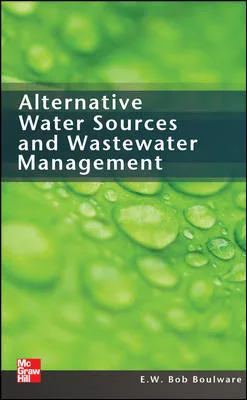Water quality and water conservation
The topic of water seems to be on many people’s minds.
Whether it’s water conservation to deal with drought conditions in the Western states or water contamination issues in areas such as Flint, Mich., the topic of water seems to be on many people’s minds.
Part of the problem comes from our country’s aging water infrastructure. In 2013, the American Society of Civil Engineers in its Report Card on America’s Infrastructure gave the nation’s potable water and sewage infrastructure a barely passing grade of D, saying an estimated 240,000 water-main breaks occur each year. Many city water systems are relying on delivery systems and treatment technology dating back before World War 1 — including wood water pipe from the late 19th century.
The American Water Works Association notes it would take at least $1 trillion to repair and replace aging water systems. The future is not so dire that we can’t make inroads into solving the problem. ASCE took at look at various innovative infrastructure programs across the country — from water to transportation to energy — that can be replicated to help build tomorrow’s infrastructure. You can learn about them at www.ascegamechangers.org.
The 2013 ASCE report notes the quality of America’s water is still high. Yet our cover story on page 26 illustrates that public perception of the nation’s drinking water is that it is not safe. More than three-quarters of consumers responding to a 2015 Water Quality Assocation study say they buy bottled water, and the top reason is because they believe their tap water is contaminated.
The opportunity is there for plumbing contractors to add water treatment services to their businesses, especially if the local area has known water issues. If those issues include aggressive or corrosive water, adding pipe lining services can help customers repair their water piping systems in an economical and less destructive manner than replacing the pipe. You can read more about how pipe lining systems also help with water contamination here in this month’s feature: Pipe restoration for water quality.
While many people may not have serious issues with how their water tastes or worry about contaminants, hard water is an issue they may not realize has long-lasting implications. Hard water can leave mineral buildup in boilers, water heaters, dishwashers and washing machines, hindering their performance and eventually damaging them. A whole-house water softening system alleviates the worry of replacing water heaters or dishwashers before their time.
When talking to clients about water conservation, the message must focus on saving money by saving water. The U.S. Enviromental Protection Agency says an average household’s leaks account for more than 10,000 gallons of water wasted each year. Common leaks are worn toilet flappers, dripping faucets and other leaking valves.
The EPA sponsors Fix A Leak Week each year; the 2016 dates are March 14-20. Many industry associations promote this event to members as a means to market themselves as water experts in their communities.
The Plumbing-Heating-Cooling Contractors-National Association offers members a Certified Water Auditor Program to help plumbing contractors expand their businesses by determining the type of leaks a home or business has and suggesting cost-effective solutions. A water auditor reviews the existing water devices and operations in a home or business and makes building-science-based recommendations, supported by projected savings in water, energy and money.
To learn more about PHCC’s program, contact Chuck White, PHCC’s vice president of technical and code services, at white@naphcc.org.
Green Plumbers Training, administered by IAPMO, also offers training and certification in water conservation to assist plumbers, inspectors and other building officials in understanding their roles in the environment and public health. The training consists of material related to efficient water and energy use, including graywater, rainwater, municipally supplied reclaimed/recycled water, estimating condensate production and reuse, and onsite wastewater treatment.
Other training objectives by Green Plumbers include a reintroduction of solar thermal concepts to the plumbing trade, a review of high-efficiency plumbing and related appliances, how to find rebates, and how to conduct water audits. To learn more about Green Plumbers, contact Doug Kirk, director of the Green Plumbing curriculum, at doug.kirk@iapmo.org.
I’ve heard people say water is the new oil. If that’s the case, plumbers are in the right place to position themselves as water experts in their communities. It will take time to research the water issues in your community, learn about possible solutions, partner with the right people and market your new services.
But what you’ll gain in community goodwill, new customers and a healthier bottom line will be worth it.
This article was originally titled “Water is the word” in the February 2016 print edition of Plumbing & Mechanical.
Looking for a reprint of this article?
From high-res PDFs to custom plaques, order your copy today!





